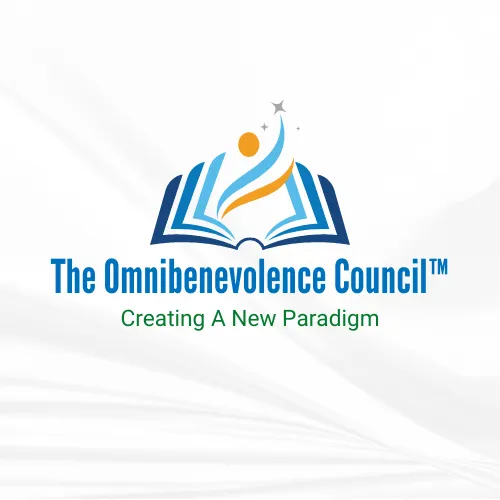3 Main Reasons Why Omnibenevolence is the Key Concept for 2025
In a world where the pace of change is accelerating, organizations face a profound transformative moment in 2025. Are you ready?
The concept of omnibenevolence, or universal goodness, emerges as an essential guiding principle for leaders striving to foster a thriving culture. It's paramount to embrace this.
As we stand on the brink of this new era, the integration of omnibenevolence into corporate practices promises not just to enhance profitability but to redefine success itself. Grounded in the principles of metaphysics - i.e. the universal science of wisdom - and inspiring to the wise use of Corporate Anthropology practices, it can find entrance by the role of the Chief Mental Health Officer, while being measured through Happiness Indexes.
Thus, the Culture of Well-Being is set to become the cornerstone of organizational growth.
The Power of Omnibenevolence
Omnibenevolence is more than just a lofty ideal; it is a practical strategy for cultivating a work environment where individuals and organizations can flourish. By infusing kindness, forgiveness and empathy into all aspects of corporate life, leaders can unlock unprecedented levels of engagement, innovation, and resilience among their teams. This universal goodness then serves as the foundation upon which trust and collaboration are built, fostering a culture that values every individual's contribution.
Corporate Anthropology: Understanding Human Behavior
Corporate Anthropology offers a unique lens through which to view omnibenevolence. By understanding the intricacies of human behavior and organizational rituals, leaders can craft strategies that resonate deeply with their employees' values and motivations. Moreover, anthropological insights enable organizations to tailor their approaches, ensuring that kindness, forgiveness and empathy are not superficial gestures but integral parts of the company's DNA.
The Role of the Chief Mental Health Officer
Incorporating omnibenevolence into corporate practice demands the expertise of a Chief Mental Health Officer (CMHO). This pivotal role ensures that mental health and well-being are prioritized at the highest level. A CMHO advocates for policies and practices that promote emotional and psychological health, creating a supportive environment where employees can thrive. By championing omnibenevolence, CHMOs help dismantle barriers to mental health, leading to a more engaged and productive workforce.
Measuring Success Through Happiness Indexes
Traditional metrics of success often focus narrowly on financial performance. However, in 2025, being able to move even beyond the Happiness Index emerges as a critical measure of organizational health. By assessing employee satisfaction and well-being, leaders gain valuable insights into the effectiveness of their omnibenevolent strategies. A high Happiness Index is a testament to a thriving workplace, where employees feel valued and supported, driving loyalty and reducing turnover. And then, by providing a vision even beyond this Happiness Index, it foresees in the next stage of human evolution.
Cultivating a Culture of Well-Being
A Culture of Well-Being is essential for cultivating an environment where omnibenevolence can flourish. This culture prioritizes holistic health, including physical, emotional, and social well-being. By integrating wellness initiatives into the corporate fabric, organizations demonstrate a genuine commitment to their employees' overall quality of life. A supportive and nurturing workplace inspires loyalty and dedication, translating into tangible business outcomes.
Emotional, Rational, and Spiritual Argumentation
Omnibenevolence appeals to the heart, mind, and spirit. Emotionally, it fosters a sense of belonging and purpose, motivating employees to give their best. Rationally, it aligns with the growing body of evidence that supports the link between well-being and productivity. Spiritually, it resonates with the human desire for meaningful connections and ethical leadership. By embracing omnibenevolence, organizations thus align themselves with a powerful force that transcends conventional boundaries.
The Call to Action
As we chart the course for 2025, the time to act is now. Leaders are invited to join the movement towards omnibenevolence by visiting The Omnibenevolence Council™. By engaging with this council, leaders gain access to invaluable resources, insights, and support as they embark on this transformative journey.
The Major Benefit for Your Leadership
The adoption of omnibenevolence offers a compelling benefit for leaders: the ability to inspire and retain top talent. In an era where skilled professionals are increasingly discerning about their work environments, organizations that prioritize well-being and universal goodness will stand out as employers of choice.
By embracing omnibenevolence, leaders not only cultivate a loyal and motivated workforce but also position their organizations for sustained success.
Be one of the pioneers who is ahead of this new trend now, before it truly becomes a movement and mainstream approach. This will give you a collaborative advantage!
Conclusion
Thus, Omnibenevolence is even more than just a key concept for 2025; it is a strategic imperative. By embracing universal goodness, organizations can transform their cultures and unlock unparalleled potential.
The integration of Corporate Anthropology, the role of the Chief Mental Health Officer, and the measurement of Happiness Indexes all contribute to a Culture of Well-Being that supports sustainable growth.
That's why it's very clear: Now is the time to take action and join the movement towards a future defined by compassion and connection.
Visit The Omnibenevolence Council™ to learn more and begin your journey towards a brighter, more benevolent future. Request your free Mind Map Demo today via the form on this page.
